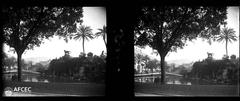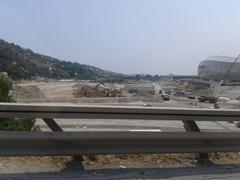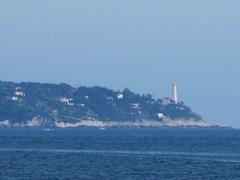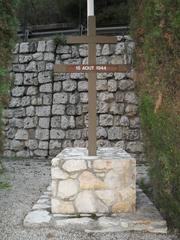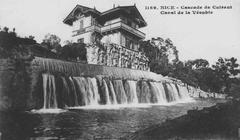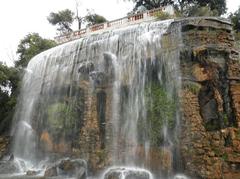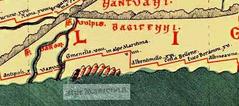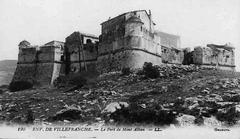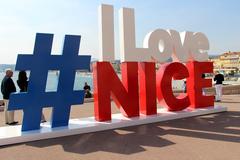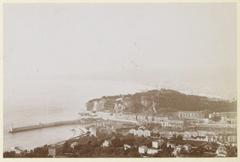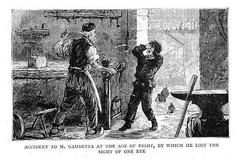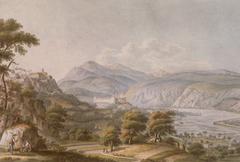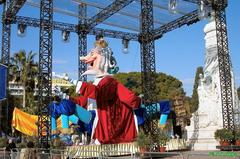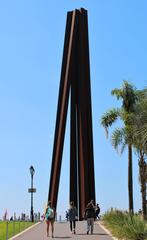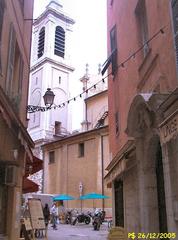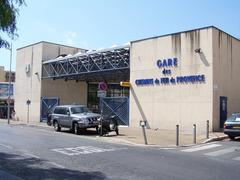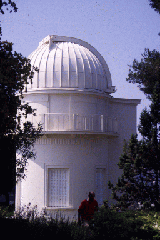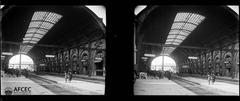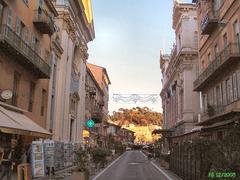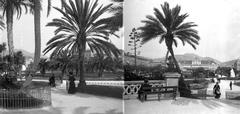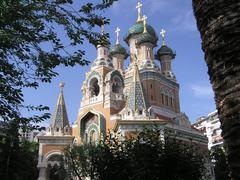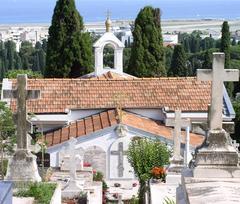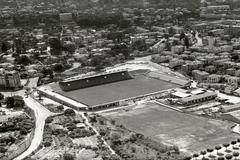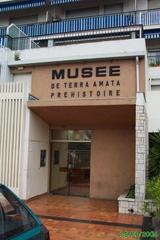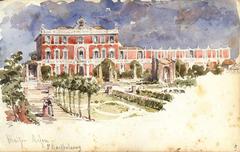
Lycée Masséna Nice: Visiting Hours, Tickets, and Historical Significance Guide
Date: 03/07/2025
Introduction
Lycée Masséna, nestled in the heart of Nice, France, is both a beacon of educational excellence and a monument to the city’s civic and architectural heritage. Established in 1812, the lycée has evolved from its revolutionary roots as the “École Centrale” into a leading French secondary and preparatory school renowned for its academic rigor and dynamic cultural life. Its Belle Époque architecture, iconic clock tower, and lush courtyards make it a must-see for visitors interested in the rich tapestry of Nice’s history and urban development (lycee-massena.fr; explorenicecotedazur.com; Prepas.org).
This guide provides a comprehensive overview of Lycée Masséna’s history, architectural highlights, visitor information—including hours, tickets, and accessibility—plus tips for exploring nearby attractions and making the most of your visit to this emblematic Nice landmark.
Table of Contents
- Historical Background and Development
- Architectural Significance
- Naming and Symbolic Importance
- Educational Excellence and Alumni
- Visiting Information: Hours, Tickets, and Accessibility
- Nearby Attractions and Travel Tips
- Events and Special Occasions
- Frequently Asked Questions (FAQ)
- Practical Information
- Conclusion
- References
Historical Background and Development
Origins
Lycée Masséna’s origins are deeply rooted in the political reforms of post-Revolutionary France. The institution began as the “École Centrale” in 1795, established by decree to promote secular and republican values in education (lycee-massena.fr). Napoleon Bonaparte’s 1802 reforms called for the establishment of a lycée in each departmental capital, but administrative and financial hurdles delayed the school’s opening until 1812.
Political Transformations
The lycée’s history mirrors the region’s shifting sovereignties. After Napoleon’s fall, the County of Nice reverted to the Kingdom of Piedmont-Sardinia, and the school was managed by Jesuits as the “Collège Royal” until Nice’s annexation to France in 1860. Since then, the lycée has remained an integral part of the French educational system, adapting to successive reforms and political changes (lycee-massena.fr).
Site Evolution
The current building sits on the site of the former 17th-century Couvent des Augustins Déchaux. Major reconstruction between 1909 and 1931, led by architect Henri Ébrard, transformed the lycée into a Belle Époque masterpiece, blending neoclassical and Italianate elements (pss-archi.eu; explorenicecotedazur.com).
Architectural Significance
Lycée Masséna is celebrated for its architectural grandeur and harmonious integration into Nice’s urban fabric.
Exterior Features
- Turbie Stone: The building’s luminous facades are crafted from La Turbie stone, a local material lending unity and regional character (pss-archi.eu).
- Ornamentation: Mosaics, wrought iron balconies, ceramic motifs, and palm-lined courtyards create a vibrant Belle Époque aesthetic (explorenicecotedazur.com).
- Clock Tower: The southern corner features the iconic clock tower inscribed with the Latin motto, “Horas ne numerem nisi serenas” (“I wish to count only the happy hours”), a beloved city landmark.
Interior Spaces
- Italian-Style Hall: The main hall, designed in a horseshoe shape, is reminiscent of an opera house, complete with royal box, red upholstery, chandelier, and a fresco by Emmanuel Costa (explorenicecotedazur.com).
- Artistic Detailing: Sculpted stonework, mosaics, ceramic panels, and ornamental ironwork abound throughout the interiors (pss-archi.eu).
Site Context and Preservation
The lycée stands at a crossroads of Nice’s old and modern districts, facing the Coulée Verte (Promenade du Paillon) and close to Place Masséna. Recognized as a Historic Monument since 2017, it is carefully maintained to preserve its unique features while serving an active student body (explorenicecotedazur.com).
Naming and Symbolic Importance
In 1963, the lycée was officially named after André Masséna, Marshal of the Empire and native of the region, symbolizing local pride and the enduring influence of Napoleonic heritage (lycee-massena.fr). The clock tower and its motto have become emblematic of the school’s spirit and the city’s optimistic outlook.
Educational Excellence and Alumni
Lycée Masséna is renowned for its classes préparatoires aux grandes écoles (CPGE), preparing students for France’s elite institutions. With 19 divisions of CPGE, it is among the largest in the Nice academy and has produced generations of writers, politicians, scientists, and cultural figures (Prepas.org). The school’s tradition of academic rigor and intellectual curiosity contributes to its prestigious reputation.
Visiting Information: Hours, Tickets, and Accessibility
Visiting Hours
- General Access: The school is open to visitors mainly during special cultural events, such as the European Heritage Days (Journées du Patrimoine) each September. Regular visiting hours are limited due to ongoing educational activities (Gralon).
- Exterior Viewing: The façade, clock tower, and gardens can be admired from public spaces at any time.
Tickets and Entry
- Admission: There is no fee to view the exterior. Interior access during special events is usually free but may require advance registration (Prepas.org).
- Guided Tours: Available by arrangement during open days or through the Nice tourism office. Contact the school administration for upcoming opportunities (Official website).
Accessibility
- Mobility: While the exterior and gardens are generally accessible, some interior areas may have limited access due to the building’s historic nature. Visitors with disabilities should contact the administration in advance to discuss specific needs (ThreeBestRated).
Location and Transportation
- Address: 2, avenue Félix-Faure, 06050 Nice Cedex 1, France
- Transport: Tram lines 1 and 2 (Masséna stop), multiple bus routes, and a 15-minute walk from Nice-Ville train station (Wikipedia)
Nearby Attractions and Travel Tips
Lycée Masséna’s central location makes it an ideal launch point for exploring Nice’s top attractions:
- Place Masséna: The main square, known for its vibrant atmosphere and striking architecture (GoLanguedoc).
- Promenade des Anglais: The iconic seafront boulevard.
- Old Town (Vieux Nice): A maze of Baroque churches, markets, and narrow streets.
- Promenade du Paillon: Urban park perfect for relaxation.
- Musée Masséna: Museum of local history, housed in a Belle Époque villa (GoAskALocal).
Travel Tip: Plan your visit during European Heritage Days for special access, and consider combining your trip with nearby museums and cultural sites.
Events and Special Occasions
- European Heritage Days (Journées du Patrimoine): Held annually in September, offering rare access to the school’s interiors and guided tours (Gralon).
- Open House Events: Periodically scheduled—check the official website for updates.
- Cultural Programs: The lycée occasionally hosts exhibitions or performances, some open to the public.
Frequently Asked Questions (FAQ)
Can I visit Lycée Masséna at any time?
Public visits are generally restricted to special events or by prior arrangement.
Are guided tours available?
Guided tours are offered during heritage days and by advance booking.
Is there an admission fee?
No, entry is free for exterior visits and most public events.
Is the building accessible for visitors with reduced mobility?
Accessibility is improved in public areas, but some historic interiors may be limited.
Are photographs permitted?
Photography is allowed outside; indoor photography requires permission.
Practical Information
- Address: 2, avenue Félix-Faure, 06050 Nice Cedex 1, France
- Phone: +33 (0)4 93 62 77 00
- Website: http://www.lycee-massena.fr/
- Opening Hours: Monday–Friday, 8:00 am–4:30 pm; closed weekends (ThreeBestRated)
- Public Transport: Tram lines 1 and 2 (Masséna), multiple buses
Conclusion
Lycée Masséna stands as a testament to Nice’s educational legacy, architectural splendor, and civic pride. Its Belle Époque elegance, storied past, and central location make it an essential stop for visitors exploring the city’s historical and cultural heart. While public access is limited, planning your visit around special events or open days allows you to experience its remarkable interiors and vibrant atmosphere.
For the latest information on visiting hours, tours, and events, consult the official Lycée Masséna website and local tourism portals. Download the Audiala app for curated audio guides and insider tips to enrich your journey through Nice’s heritage sites.
References
- Lycée Masséna official website
- PSS-ARCHI: Lycée Masséna Building Data
- Explore Nice Côte d’Azur – Nice and the Belle Époque
- Prepas.org: Lycée Masséna Profile
- Gralon: Lycée Masséna Presentation and History
- GoLanguedoc: Visit Nice in July
- GoAskALocal: Nice France Travel Guide
- ThreeBestRated: High School in Nice
- Wikipedia: Lycée Masséna
- AreaRegionSud: Lycée Masséna Monument Historique




















